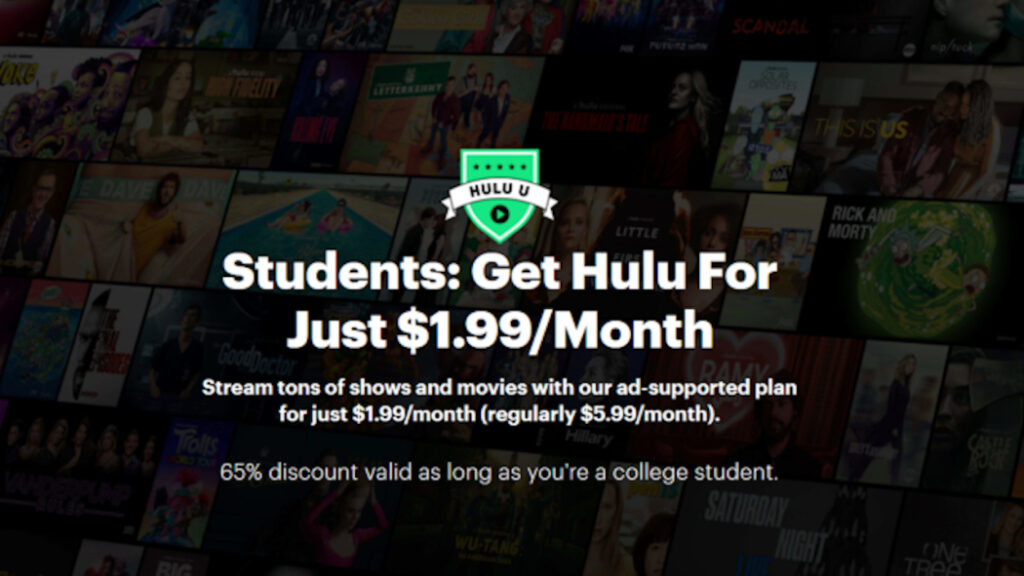
How New Brands Can Successfully Market To College Students
How New Brands Can Successfully Market To College Students
Entering the college market can be a daunting task for new brands. With nearly 20 million students enrolled in U.S colleges, this demographic presents enormous potential for businesses savvy enough to tap into it. This article will illuminate effective strategies that help new brands successfully reach and engage with college students.
Ready to capture the attention of Gen Z? Let’s dive in!
Key Takeaways
- College students are digital natives who respond more positively to digital marketing strategies.
- Price-consciousness is a key characteristic of college students, so brands must offer high-value products at affordable prices.
- Social media is a powerful tool for reaching and engaging with college students.
- Starting conversations and building relationships is more effective than just sharing ads.
- Targeted marketing content that aligns with the needs and preferences of college students is crucial.
- Offering free trials or low-cost subscriptions can attract the attention of budget-conscious college students.
- Word-of-mouth advertising and peer-to-peer influence are important for marketing to college students.
- Brands that align with causes and values have an advantage when targeting this demographic.
- Understanding the college life cycle helps in creating effective marketing strategies.
- Providing accessible touchpoints through grassroots messaging, experiential marketing, and social media engagement is important.
Understanding the College Student Demographic

College students are digital natives, price-conscious consumers, and are constantly online and active on social media.
Digital Natives
College students, often categorized as Generation Z, are undeniably digital natives. They cherish their tech-savvy skills and habitually engage with online platforms almost instinctively. They tend to be skeptical of traditional marketing approaches and respond more positively to digital marketing strategies that align with their technological fluency.
This demographic effortlessly navigates the realm of technology adoption and employs it as an essential tool in their everyday lives. Their widespread digital literacy makes online marketing a critical method for brands aiming to target this audience. Their constant connectivity means that the virtual world is the ideal location for launching successful campaigns aimed at this consumer group.
Price-Conscious Consumers
Mastering a tight budget comes naturally to most college students. They are enthusiastic deal-seekers, always on the lookout for great value at lower prices. As price-conscious consumers, they make savvy use of discounts, coupons, and clearance sales to manage their limited funds effectively.
Brands looking to target this demographic must offer high-value products without causing a strain on these young adults’ wallets. Strategies such as flash sales and student discounts can be extremely appealing to savings-minded students. Above all, it’s crucial for marketing messages to highlight not only the quality but also the affordability of products or services offered.
Constantly Online and Active on Social Media
College students constitute a significant portion of social media users today. They navigate the virtual world with ease, and their online presence is consistently marked by likes, shares, and comments across multiple platforms.
This high level of digital engagement doesn’t stop at entertainment; they use these platforms to connect with one another and actively participate in online conversations. As businesses seek to tap into this millennial market, understanding their online habits becomes crucial.
With approximately seven in ten Americans using social media for various reasons, brands have recognized the potential it holds for reaching their target audience – college students. It’s no longer just about being on social media; it’s about being active and engaging where your audience is.
Effective Marketing Strategies for College Students

Utilize social media to connect and engage with college students, creating a strong online presence that resonates with their digital-native lifestyle.
Utilizing Social Media
Social media is a powerful tool for marketing to college students. By utilizing platforms such as Instagram, Facebook, and Twitter, brands can establish their online presence and connect with their target audience. Active engagement on social media accounts allows brands to announce new products or releases, spark conversations, and build relationships with college students. Social media ads and videos are also effective in grabbing the attention of this tech-savvy demographic. To successfully market to college students, it is crucial for brands to understand their social media preferences and create content that resonates with them.
Starting Conversations Instead of Sharing Ads
To effectively market to college students, it’s essential to start conversations rather than just sharing ads. College students are more receptive to authentic communication and building relationships. By engaging with students through personalized messaging and interactive content, brands can leverage word-of-mouth marketing and peer-to-peer influence.
This approach allows for a deeper connection with the target audience, as well as the opportunity to gain insights and feedback directly from them. Grassroots messaging is more effective in reaching college students than flashy ads, making it crucial for brands to prioritize conversation and engagement over traditional advertising tactics.
Targeted Marketing Content
Targeted marketing content is crucial when it comes to effectively reaching college students. By tailoring advertising and messaging specifically to their needs and preferences, brands can grab their attention and make a lasting impact. This means understanding what resonates with college students, whether it’s aligning with causes they care about or providing content that sparks conversations. By offering targeted discounts and creating engaging content, brands can attract college students and build long-term relationships with this influential demographic.
Offering Free Trials or Low-Cost Subscriptions
College students are always looking for ways to save money, so offering free trials or low-cost subscriptions is a great way to attract their attention. By providing promotional offers and affordable pricing options, brands can entice students and capture their interest. Giving them the opportunity to try out a product or service at no cost or for a discounted price allows them to experience its value firsthand. This not only helps build brand awareness but also increases the likelihood of converting college students into loyal customers.
Additionally, marketing on college campuses with free product samples can be highly effective in reaching this target audience and generating buzz around a brand. Clever copywriting and engaging advertisements that highlight these trial periods and student-friendly promotions will further enhance the appeal for budget-conscious college students.
Word-of-Mouth Advertising
Word-of-mouth advertising is a highly effective strategy when marketing to college students. It builds trust and credibility with new customers, resulting in five times more sales compared to paid ads. College students respond better to authentic grassroots messaging rather than flashy advertisements. They rely on word-of-mouth recommendations from their peers and value the opinions of their friends and classmates.
Harnessing the power of peer-to-peer communication can lead to brand loyalty among college students, making it a crucial component of any successful marketing campaign targeting this demographic.
Aligning with Causes and Values
Brands that align with causes and values have a powerful advantage when marketing to college students. Research shows that 77% of college students want to support brands that share their values and causes. By connecting with the beliefs and interests of this demographic, brands can create a positive association and establish long-term loyalty. When a brand stands for something meaningful, it resonates with college students on a deeper level. This connection goes beyond product features or pricing; it taps into their desire for social responsibility and purpose-driven engagement. Aligning with causes and values not only attracts college students but also helps build a positive brand image among this influential consumer group. Incorporating shared values into marketing strategies allows brands to connect authentically with college students.
When done effectively, this approach can lead to increased brand loyalty, advocacy, and active participation in promoting the brand’s message. Instead of simply selling products or services, these brands become part of the conversation about important issues that matter to college students today.
Understanding the College Life Cycle
The college life cycle encompasses the various stages that students go through during their higher education journey. It begins with the transition from high school to college, where students experience a significant change in their environment and responsibilities. Once in college, students immerse themselves in student life, attending classes, participating in clubs and organizations, and engaging with peers.
Finally, as they near graduation, students face the transition into the workforce or further education. Understanding this life cycle is crucial for effective marketing to college students as it allows brands to align their strategies with key milestones and needs of students throughout their academic years.
Providing Accessible Touchpoints
Marketing strategies for college students should focus on providing accessible touchpoints that are easy for them to engage with. This can include grassroots messaging and experiential marketing tactics, which allow brands to connect with students in a more personal and tangible way. Referral-based campaigns can also provide effective touchpoints by leveraging peer referrals, as college students often rely on recommendations from friends when making purchasing decisions.
Additionally, social media is a valuable touchpoint for reaching and engaging college students, as they are constantly online and active on these platforms. By understanding their unique lifestyles and preferences, brands can create relatable marketing campaigns that resonate with this demographic and drive meaningful engagement.
Tips and Tricks for Marketing to College Students

Leverage product trials and samples, offer targeted discounts, create engaging content, utilize traditional marketing tactics, engage with student ambassadors, incorporate social causes, utilize college media sources, and influence parents as well.
Leveraging Trials and Samples
Leveraging trials and samples is a powerful strategy when marketing to college students. By offering free trials or low-cost subscriptions, brands can capture the attention and interest of this demographic.
College students are often price-conscious consumers, so providing them with the opportunity to try a product before committing to a purchase can be an effective way to build trust and loyalty.
Additionally, targeted discounts and promotional offers can further entice college students to make a purchase. Providing incentives such as freebies or trial periods not only allows brands to showcase their products but also creates positive word-of-mouth advertising as satisfied customers share their experiences with others.
Offering Targeted Discounts
Offering targeted discounts is a highly effective marketing strategy for reaching college students. Exclusive discounts and cost-saving options are appealing to students who are always looking to save money.
By providing promotional offers specifically tailored to student preferences, brands can attract new customers while also helping students save on their purchases. Targeted discounts can be a key component of successful college marketing campaigns, as they tap into the unique needs and desires of this demographic.
Utilizing student-focused promotions is an excellent way for brands to engage with college students and establish long-lasting relationships with this valuable consumer group.
Creating Engaging Content
Creating engaging content is essential when marketing to college students. This means developing captivating and interactive materials that resonate with their interests and preferences.
By tailoring advertisements specifically for the target audience, using effective communication strategies, and implementing content marketing tactics, brands can connect with students on a deeper level.
Engaging campaigns that incorporate relevant messaging and student-centered marketing techniques are more likely to capture the attention of college students and drive them to take action.
Utilizing Traditional Tactics
Traditional marketing tactics may not be as effective when it comes to targeting college students. This tech-savvy generation is constantly connected online, making it important for brands to have a strong online presence.
Engaging with college students through digital platforms and social media can be more impactful than traditional advertising methods. By understanding the unique needs and preferences of this demographic, brands can tailor their messaging and content to resonate with college students and create successful marketing campaigns.
Engaging With Student Ambassadors
Student ambassadors play a crucial role in the marketing efforts targeted towards college students. These ambassadors, who are typically current students themselves, have an authentic and relatable connection with their peers.
By engaging with student ambassadors, brands can tap into their network of influence and reach a wider audience. Student ambassadors can create user-generated content, host events, and spread positive word-of-mouth about the brand.
Not only does this help build brand awareness and credibility among college students, but it also provides long-term return on investment (ROI) for brands. Additionally, working with student ambassadors is cost-effective as the cost of acquiring customers (CAC) is typically low compared to other marketing strategies.
Incorporating Social Causes
Incorporating social causes into marketing strategies can be a powerful way to engage college students. By aligning with causes that resonate with this demographic, brands have the opportunity to raise awareness and demonstrate their social responsibility.
Millennial and Gen Z consumers are passionate about making a difference in the world, and they appreciate brands that share these values. Cause-related marketing campaigns not only help promote social awareness but also foster a sense of purpose among college students.
This approach allows brands to connect on a deeper level with their target audience and establish themselves as socially conscious entities in their eyes.
Utilizing College Media Sources
College media sources can be a powerful tool for reaching and engaging with college students. By leveraging these platforms, new brands have the opportunity to build brand awareness among this demographic.
College media outlets provide valuable resources that can help tailor marketing campaigns specifically for college students, maximizing their potential reach and impact. With access to these channels, businesses can effectively promote their products or services and connect with college students through relevant content and messaging.
Engaging with college students through media sources is a key strategy in successfully marketing to this important consumer group.
Influencing parents as well.
Parents play a significant role in the purchasing decisions of college students. Research shows that children can recognize brand names as early as 3 or 4 years old, influencing their parents’ choices when it comes to buying products or services.
Effective marketing campaigns should not only target college students directly but also consider the influence parents have on their decision-making process. By leveraging social media platforms and creating authentic and engaging content, brands can effectively reach out to parents, build brand recognition, and increase brand awareness among this influential group.
Understanding parental purchasing behavior and utilizing advertising strategies that appeal to both college students and their parents can lead to increased success in marketing efforts targeting this demographic.
Successful College Student Campaigns

Red Bull energized college campuses with their innovative marketing strategies, while Madewell attracted fashion-forward students with their trendy clothing and accessories. PINK captured the attention of young women on campus with their stylish activewear, Apple became a popular choice for tech-savvy students with their sleek products, and Spotify, Hulu, and SHOWTIME offered irresistible bundled services that catered to college students’ entertainment needs.
Red Bull
Red Bull is a prime example of a brand that has successfully marketed to college students. With their brand ambassador program, Red Bull effectively utilizes enthusiastic college students to promote their product on campuses.
By distributing free drinks through their “Red Bull Girls,” they not only generate buzz and word-of-mouth advertising but also create a strong brand image among the target audience.
This targeted marketing strategy has helped Red Bull sell billions of energy drinks annually and build lasting brand loyalty among college students.
Madewell
Madewell, a successful brand targeting college students, has effectively marketed itself through innovative campaigns. Under the leadership of CEO Libby Wadle, Madewell has focused on denim and community in its branding efforts.
By experimenting with various ideas related to denim and community engagement while taking low risks, Madewell has been able to capture the attention of college students. The brand also utilizes brand ambassadors on college campuses to give away free products, further enhancing its appeal among this demographic.
Known for its high-quality jeans and denim offerings, Madewell’s marketing campaigns have successfully resonated with college students seeking fashionable yet comfortable clothing options.
PINK

PINK, the sister brand of Victoria’s Secret, has made a name for itself with successful college student campaigns. One key factor in their marketing strategy is their college rep program, which offers an inside look at the brand and its products to students on campus.
By targeting young adults early in their college years, PINK aims to cultivate brand loyalty that can continue long after graduation. With a strong presence on social media and collaborations with influencers, PINK leverages these channels to engage with college students and create buzz around their products.
Additionally, offering student discounts and partnering with college brands further solidifies their connection with this demographic. Overall, PINK understands the importance of connecting with college students during this influential period of their lives in order to build lasting brand relationships.
Apple
Apple is a prime example of a brand that has successfully marketed to college students. With its widespread use of Apple devices in universities, the company has established itself as a go-to choice for technology in higher education.
Faculty and staff at top colleges and universities globally rely on Apple products for their teaching and administrative needs. Additionally, Apple’s marketing strategy has proven effective in launching new products in competitive industries.
The company offers an education store with discounts and promotions specifically geared towards students, as well as grants for nonprofits and support for teachers integrating technology into their classrooms.
Spotify, Hulu, and SHOWTIME
Spotify, Hulu, and SHOWTIME are prime examples of successful marketing campaigns targeting college students. These brands joined forces to tap into the college student market and offer enticing deals.
Spotify partnered with both Hulu and Showtime to provide free television to its student users, giving them access to a wide range of entertainment options. In addition, Showtime offered discounted subscriptions for college students in the US through this collaboration.
By teaming up with Spotify, Hulu and Showtime were able to reach a broader audience of price-conscious digital natives who are constantly online and active on social media platforms.
Conclusion
In conclusion, successfully marketing to college students requires a deep understanding of their unique characteristics and preferences. By leveraging social media, starting conversations instead of sharing ads, offering free trials or low-cost subscriptions, and aligning with causes and values that resonate with this demographic, new brands can effectively capture the attention and loyalty of college students.
It’s important for brands to constantly adapt their strategies to meet the evolving needs and trends of this influential consumer group in order to stand out in a competitive market.
FAQs
1. What are some effective marketing strategies for new brands targeting college students?
Some effective marketing strategies for new brands targeting college students include social media advertising, influencer partnerships, campus events and promotions, targeted email marketing campaigns, and offering student discounts.
2. How can new brands build brand awareness among college students?
New brands can build brand awareness among college students by utilizing social media platforms popular among this demographic, collaborating with student organizations or clubs, sponsoring campus events or activities, and creating unique and engaging content that resonates with college students.
3. Is it important to understand the preferences and values of college students when marketing to them?
Yes, understanding the preferences and values of college students is crucial for successful marketing. College students have unique interests and priorities which should be considered in order to create relevant and appealing campaigns.
4. Should new brands focus on digital or traditional advertising channels when targeting college students?
While digital advertising channels such as social media platforms are often more effective in reaching college students, a combination of both digital and traditional advertising channels can yield better results. It’s important to consider the specific target audience within the college student population.
5. How can new brands establish credibility among college students?
New brands can establish credibility among college students by partnering with trusted influencers or ambassadors who resonate with this demographic, providing high-quality products or services at competitive prices, showcasing positive customer reviews or testimonials from fellow peers through various online platforms.

Share
Facebook
X
LinkedIn
Telegram
Tumblr
WhatsApp
VK
Mail